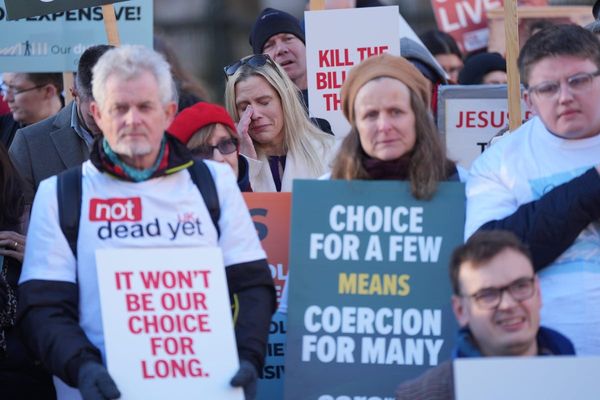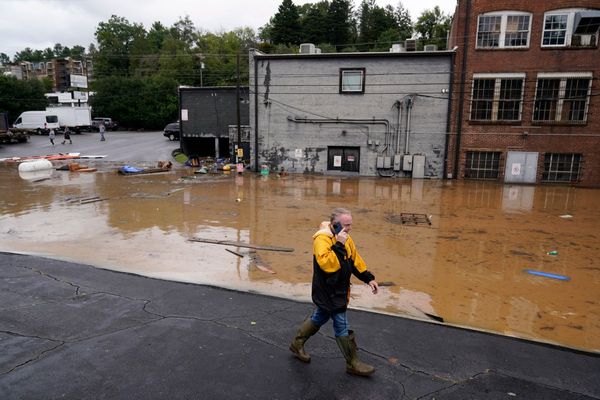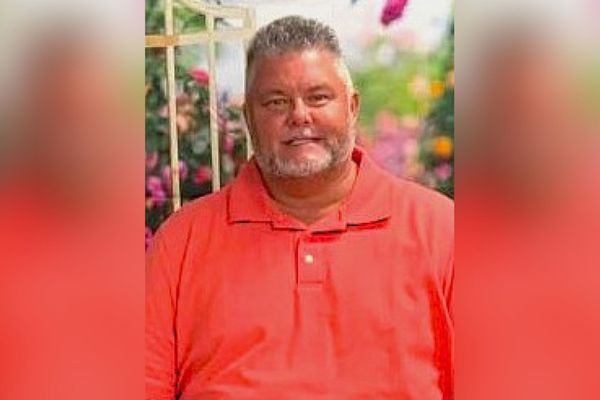
Ukrainian refugees staying on a cruise ship docked in Edinburgh must be moved to more suitable accommodation within days, welfare groups have said, as those onboard already report concerns about small rooms and feeling seasick.
The first arrivals of mainly women and children displaced by the war in Ukraine boarded the MS Victoria passenger ship earlier this week. Chartered by the Scottish government, it is expected to host up to 1,700 people and is a temporary solution to a growing accommodation crisis, which earlier this month prompted the government to pause its Ukrainian refugee sponsorship scheme for three months.
Two-thirds of the more than 9,000 Ukrainians who have arrived in Scotland since war broke out in February applied under the scheme, which allowed people applying for a UK visa to select the Scottish government as a sponsor.
The Scottish government said the ship was fully risk-assessed and all crew members had child and adult protection training as a minimum. Facilities onboard include restaurants, child play areas with toys and books, shops, a laundry and wifi access. There will be support services onboard, including healthcare and benefits support.
But welfare groups raised serious concerns about the suitability of this type of accommodation. It is the first time a ship has been used to house refugees in the UK, although a similar vessel berthed in Tallinn, Estonia, has been hosting displaced Ukrainians for months.
Gary Christie, the head of policy for the Scottish Refugee Council, said: “Any stays on MS Victoria must be as short as possible, we can’t stress this enough. People need to be able to get on with things like registering children for the new school term and applying for jobs. Families can’t be expected to stay onboard for anything more than an extremely short time before moving to safe, secure longer-term homes.”
Yevgen Chub, the treasurer of the Glasgow branch of the Association of Ukrainians in Great Britain (AUGB), echoed these concerns. “We’ve been hearing that people are really not comfortable on the ship: the rooms and windows are small, some feel seasick,” Chub said. “It’s not a good idea for the long term, but it’s worrying when we know that people have been staying in hotels for months.”
Last month, Ukraine’s consul in Edinburgh, Yevhen Mankovskyi, challenged Holyrood to explain why hundreds were still waiting in hotels for suitable long-term accommodation.
Speaking about the latest arrivals, Shona Robison, the Scottish cabinet secretary for social justice, housing and local government, said: “We do not want people spending more time in temporary accommodation, such as the ship, for any longer than is absolutely necessary. But we want to make them as comfortable as possible during their stay and we have worked with partners to provide a variety of services onboard for guests in addition to the support services available.”
Hannah Beaton-Hawryluk, the chair of the Edinburgh branch of the AUGB, said she had visited the ship herself and it was “the best it could be in the circumstances. The rooms are larger than in some hotels, and there are also communal areas where people can socialise.”
She added that local councils were working through the backlog of individuals waiting to be paired with host families or housed in accommodation more suitable for family groups. “Yes it is a slow process, but when thousands of people are arriving you only have a certain amount of resources,” she said. “It’s going in the right direction.”
Figures published by the Home Office and UK Visas and Immigration on Thursday revealed that 104,000 people had arrived in the UK under Ukraine visa schemes as of Monday.
The total includes 31,300 people under the family scheme, and 72,700 people under the Homes for Ukraine sponsorship scheme. There have been almost 200,000 visa applications in total, meaning just more than half of those who applied have arrived in the UK.







